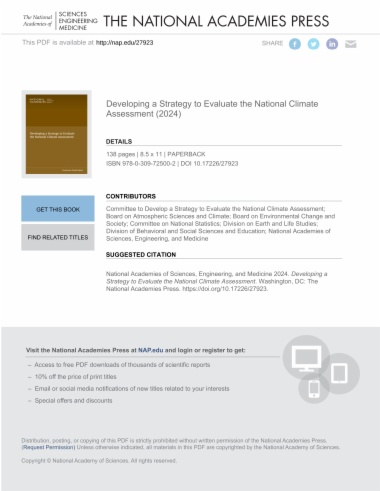

The National Climate Assessment (NCA) is a report produced periodically by the United States Global Change Research Program that takes a comprehensive look at global climate change. Before release, it undergoes intensive review for technical accuracy. What has not been studied in-depth are the users and uses of the NCA, and how the report has informed decision-making. To support evaluation of stakeholder use of the NCA, the National Academies prepared a strategy for creating and implementing an evaluation design that can inform ongoing and future NCAs and related products. This can support a process of continuous improvement.
The NCA serves a large number of audiences, and they vary in their needs and in access to climate information. An evaluation would benefit from understanding how the audiences for the NCA are interconnected through networks and how they use, modify, and transmit information from the report. The evaluation would also benefit by first creating a logic model to describe how the NCA is hypothesized to achieve its intended outcomes. The logic model can then be used to design a set of overarching evaluation questions, and to prioritize which audiences to target in the evaluation. Different research methods will be appropriate depending on the audience and the level of information available about the audience. Such an evaluation, taken in stages, can reveal the impact of federal climate science on decisions across the nation and help the USGCRP address any gaps and frailties in the NCA and related products and how they are communicated in the future.